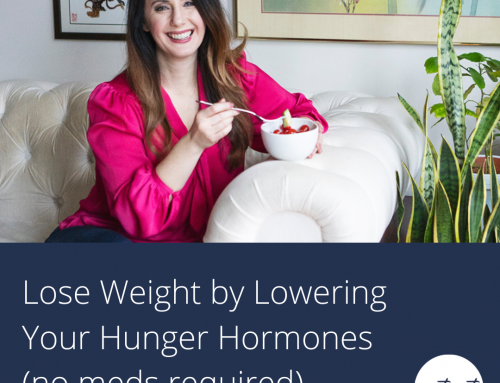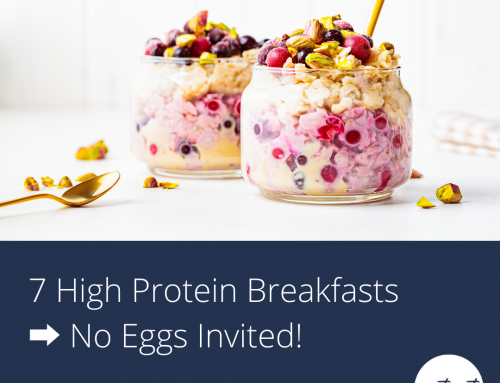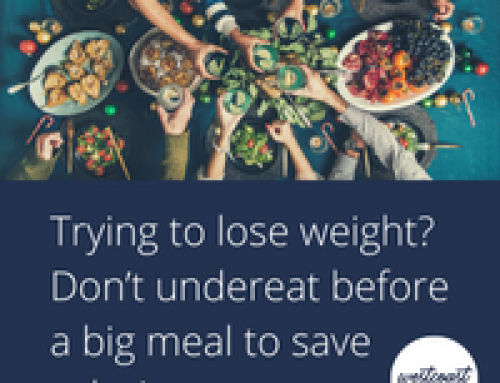Can food improve energy? Absolutely!
If you, like most of us, feel like you need a coffee or snack to keep going during the day, this post is for you. Energy is an excellent marker of health, how you’re eating and of course the lifestyle stuff (sleep, stress and the like). It’s totally normal to be tired sometimes! But if you’ve been tired for months or years, it’s time to look past the busy career or kids at home and figure out what your body needs to really thrive instead of survive.
As most of you know, I’m doing the workout to conquer cancer so our theme for May is prevention and will be focused on health markers as well as practical, real life ways to get better health. We’ll cover another health marker, gut function, next week. On to the good stuff.
What does good energy look like?
First thing:
Unless there is a solid reason you should be tired (like you binge watched something so bad but so good on Netflix, it’s almost that time of the month, or someone woke you up before the alarm again) once you get rolling in the morning you should feel pretty energized – you don’t need to jump out of bed, but given an hour so should feel like yourself. Alert, good mood, functioning adult.
Throughout the day:
Energy should stay relatively stable throughout the day. We all have our natural rhythms, but you shouldn’t NEED a ton of coffee, tea, or snacks just to keep going.
After meals:
It’s normal to feel a touch slower after eating, your digestive system is taking up some of your body’s resources and blood flow. Any dip should be mild and short lived. If you feel really cold, super sluggish, in need of a nap (or coffee) you need to take a look at what you’re eating for sure.
Ways Your Diet Might Be Sapping Your Energy
1/3 of your plate or more is carbohydrates, even healthy ones:
When you start eating healthy you might load up on beans, sweet potatoes, quinoa or brown rice, fruit, and other carbohydrate rich whole foods. These are healthy foods that improve energy when eaten as part of a healthy plate. However, we all have a natural threshold for how much carbohydrate we need in a sitting based on our size, age and insulin sensitivity, activity (did you exercise earlier and use up the carbs from your last meal or have you been sitting for most of the week), and genetics. I find if the plate is 1/3-1/2 carbs, even healthy ones, clients struggle with the low energy that comes with the blood sugar crash post meal.
- The Fix: Try ¼ plate of healthy carbs, and increase the amount of non-starchy veggies like salads, tomatoes, green beans, snap peas, broccoli, mushrooms etc on your plate. These non-starchy veggies are superstar foods to improve energy. Don’t forget to include a protein source for extra steady energy.
Too many refined carbs:
Flour based foods like bread/crackers/pasta, cereals, instant oats, bagels, white rice, sweets, buns, pastries etc are all tough on energy. These guys aren’t the devil, but they will cause a sharp spike in blood sugar, and a big crash right after that can leave you feeling sluggish, hungry, or unfocused.
- The Fix: Try swapping more of your go-to flour based products or refined carbs for whole foods. My own sweet spot is about one “refined” carb per day, usually my avocado toast!
- Mashed cauliflower or sweet potatoes (with lots of garlic and a bit of butter of course) make a great base for meatballs and tomato sauce instead of pasta. Experiment with zucchini noodles or spaghetti squash. Try a bowl of frozen grapes if you need a sweet treat on a warm afternoon. Swap your white rice or instant oats for the whole grain version, wild rice is delicious and nutty and you can make steel cut oats in a big batch at the beginning of the week. Throw some sliced pears or apples on a salad instead of a bun on the side.
Not enough fluids:
If you’re drinking less than 1.5-2.5 L of water/tea/coffee per day you’re probably running short. Fatigue, that non-specific munchy hunger, feeling unfocused, and workouts feeling unnecessarily hard are all signs you might need more fluids.
- The Fix: Drink more! If you struggle with plain water try decaf coffee (hot or iced), herbal teas, or bubbly water. Try freshening up your water by tossing in a few berries, mint or basil leaves, cucumber slices (hello spa water), or whatever herbs or fruit you have on hand!
- Timing your water intake to other habits helps too! Aim to drink one big glass while you’re getting ready, one while you’re making dinner, one while you’re in a zoom meeting etc will help your brain remember to get more in.
Not enough veggies at each meal:
The fibre and volume slow down stomach emptying which gives you a steady drip of food for energy (instead of that big spike and crash), and the micronutrients are essential for producing chemical energy in your body – they’re like the keys that open the door so fats, carbs, and proteins can get in there and do their job. Getting enough smooths out every system we have.
- The Fix: Try sneaking in more veggies to meals you already eat, or experimenting with some veggie rich swaps. Spiralizing some zucchini and mixing it in with pasta. Trade spaghetti squash for regular noodles one night. Play with riced cauliflower as a base for your bowls. Lettuce wrap your burger with crisp butter lettuce or use it to make lettuce wraps out of your usual stir fry instead of serving it on top of white rice. More recipe ideas here:
Not enough salt (Sodium):
We’ve all been drilled on how bad salt is, and to avoid it as much as possible. Many of my healthiest eaters come in using very little. The challenge with this is that salt is an essential nutrient, and only affects blood pressure transiently for most people. On a high carb, very processed diet you will need to restrict salt. But if you eat mostly home cooked meals (90%+), follow a lower carb style, are very active (with lots of sweating) or and/or are drinking more than 3.5 L of fluid per day you may actually need MORE salt to help balance out your electrolytes and fix your energy. This isn’t for everyone, and craving salt does not mean you always need more salt (let’s not rationalize our chip addictions shall we). Check with your doc or RD before adding extra, but you’d be surprised at how finding the right balance can help your energy!
- The Fix: Be a bit more liberal with salt in your cooking, or if you find you don’t like the taste you can add a cup of broth or miso soup per day as well. If cold drinks are more your thing than an electrolyte tablet such as Nuun may also be helpful, especially if you’re active in the heat. If you’re drinking 4-5 L of fluid or more, you may also need to decrease your water intake, there is absolutely the possibility of too much of a good thing with fluid.
Not enough calories:
Under-eating will also sap your energy. This makes sense, our bodies evolved to conserve energy in times of peak stress or scarcity. Chronic dieters or those with a super restrictive food list because of digestive issues hit this wall often.
- The Fix: If you’re trying to lose weight, the deficit from your total energy requirements should be small (200-300 calories) AND you shouldn’t ever drop below your base metabolic rate. Get help finding the right numbers so you can make sure you haven’t cut things too close. If you’re really stuck, you may need a period of “re-feeding” to bring your metabolic rate and energy up. Adding 100-200 calories per day from veggies, fruits, proteins or healthy fats like nuts/seeds can go a long way towards improving energy production.
If it feels like you’re doing all the things right (food, fluids, exercise, sleep) and still totally drained you will likely benefit from some help sorting out the cause and a more personalized fix so you can feel your best. So many of my clients didn’t realize how tired they were, until they finally felt energized after years of running on fumes. I think we can all relate to those years where we just functioned….not our best lives for sure, and it makes it harder to show up for everyone around you. If you needed it, this is your permission slip to focus on improving your energy first and put some much needed focus on your own health and happiness.
Need some help getting your meals for the week balanced and prepared? If you’d like to receive our free Meal Planning Getting Started Guide AND get in on our weekly emails about all things nutrition so you can get clarity and confidence on what you’re eating, join us here!







